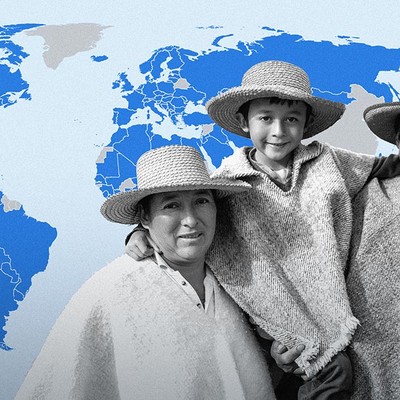People who feel more supported by others are less likely to experience daily physical pain and stress, according to a new Meta-Gallup global study of social connections.
The good news: More than seven in 10 people surveyed across 142 countries in 2022 say they feel very (35%) or fairly (36%) supported -- which translates into an estimated 3.2 billion people worldwide. The bad news: 9% say they do not feel supported at all. This means that more than 400 million people aren't reaping the benefits that feeling supported potentially offers.
The survey defined social support as “how much you feel cared for by people.” If respondents needed further clarification, interviewers specified friends, family, coworkers, neighbors, people from groups they are a part of, and even strangers.
These findings come from the recently released Global State of Social Connections study that Meta and Gallup conducted last year to understand rates of feeling lonely, socially connected and socially supported. A quarter of the population across these 142 countries felt very or fairly lonely, while the majority felt very or fairly connected.
Social support may provide a buffer against experiences of anxiety and pain.
Amid the many challenges that people face daily, supportive interpersonal relationships can play a crucial role in helping people cope with stress and anxiety.1
In the Meta-Gallup study, 71% of those who felt very supported said they did not experience stress a lot of the day before the survey, while 29% did. The percentage of those who experienced stress steadily increased as the level of support decreased. Those who did not feel supported at all were most likely to report having experienced stress (51%) a lot of the day prior to when they were interviewed.
A similar pattern emerged related to people’s experiences of physical pain: 67% of those who felt socially supported reported they did not experience physical pain during much of the previous day, while 32% did. Those who did not feel supported at all were about evenly split between a group who did experience pain (48%) and a group who did not (51%).
More people in high-income countries feel socially supported.
People’s ability to give and receive support varies based on external factors like income. While strong majorities in high-income countries reported feeling very or fairly supported (81%), about half of people (48%) living in low-income countries expressed the same.
Social networks are especially crucial in the face of financial challenges, when people may be less likely to have other types of safety nets. However, financial challenges may limit people’s ability to give back to one another and support each other.
The Meta-Gallup study also asked people how connected they feel to others. Thirty-five percent globally reported feeling “very connected,” and the percentages were not substantially different between people in low-income (36%) and high-income (38%) countries.
Yet, while socially connected people in high-income countries often feel supported, this pattern does not hold for people in low-income countries. Feelings of social connection and social support went hand in hand more often in high-income countries than low-income countries.
In high-income countries, 68% of those who felt very connected also felt very supported. Only 2% of those who felt very connected reported not feeling supported at all. This suggests that social connections in more advanced economies bring with them the promise of supportive environments for residents.
In low-income countries, however, 35% of those who felt very connected also reported feeling very supported. Nineteen percent of the “very connected” did not feel supported at all. Social connections are less likely to accompany social support in low-income economies.
Bottom Line
The findings show that feeling socially supported is associated with less stress and physical pain on a global level, which may have implications for creating strategies to help people cope.
Social support may be an important ingredient in a recipe to improve people’s health and wellbeing. Yet, this ingredient may not be as readily available in more challenging environments, and people may lack support despite feeling connected to one another. In environments like these, social safety net programs such as affordable healthcare, housing assistance or retirement income can help substitute when people lack support from each other.
To stay up to date with the latest Gallup News insights and updates, follow us on Twitter.
For complete methodology and specific survey dates, please review Gallup's Country Data Set details.
Learn more about the Meta-Gallup Global State of Social Connections study.
1 Ditzen, B., & Heinrichs, M. (2014). Psychobiology of social support: The social dimension of stress buffering. Restorative Neurology and Neuroscience, 32(1), 149-162.





